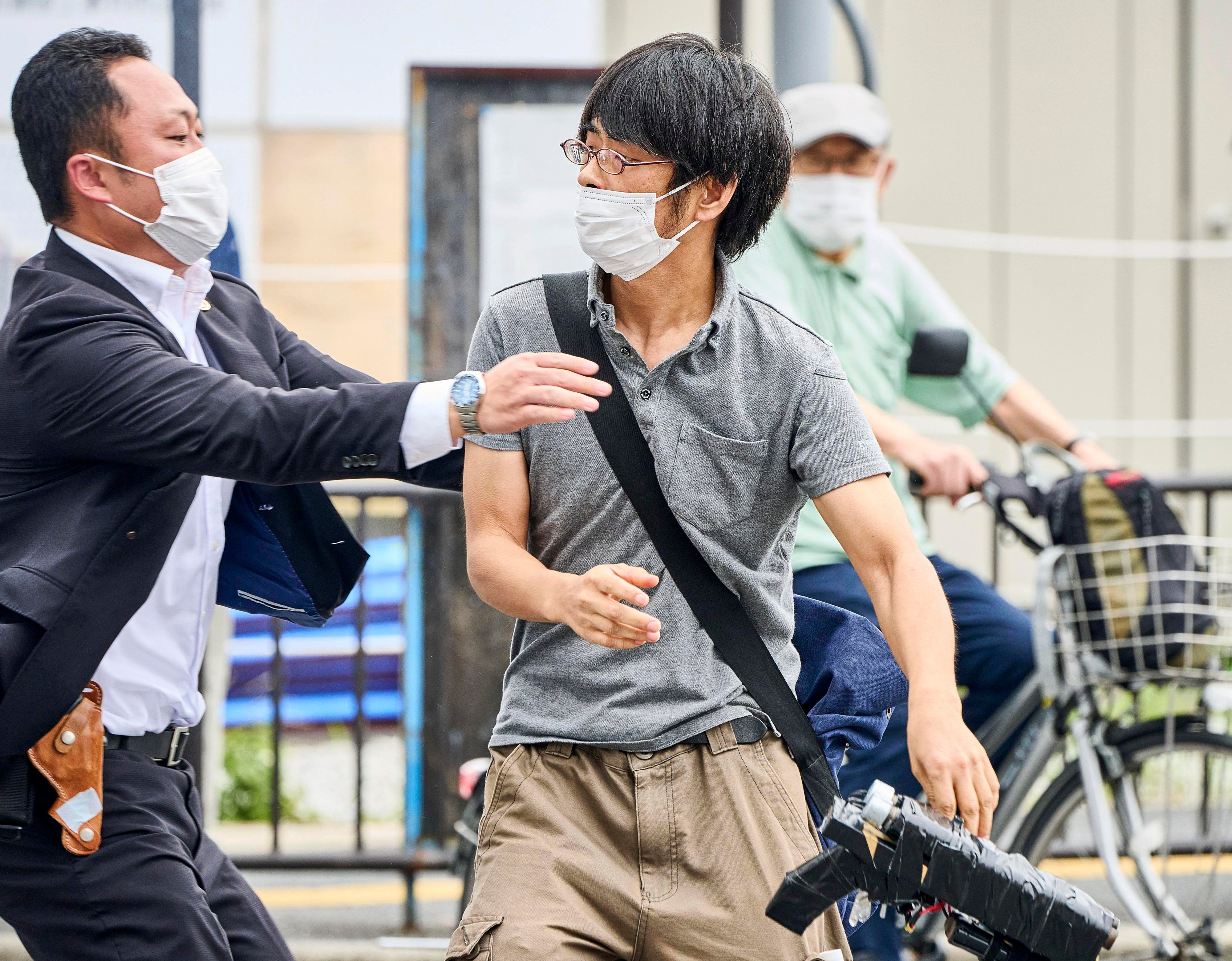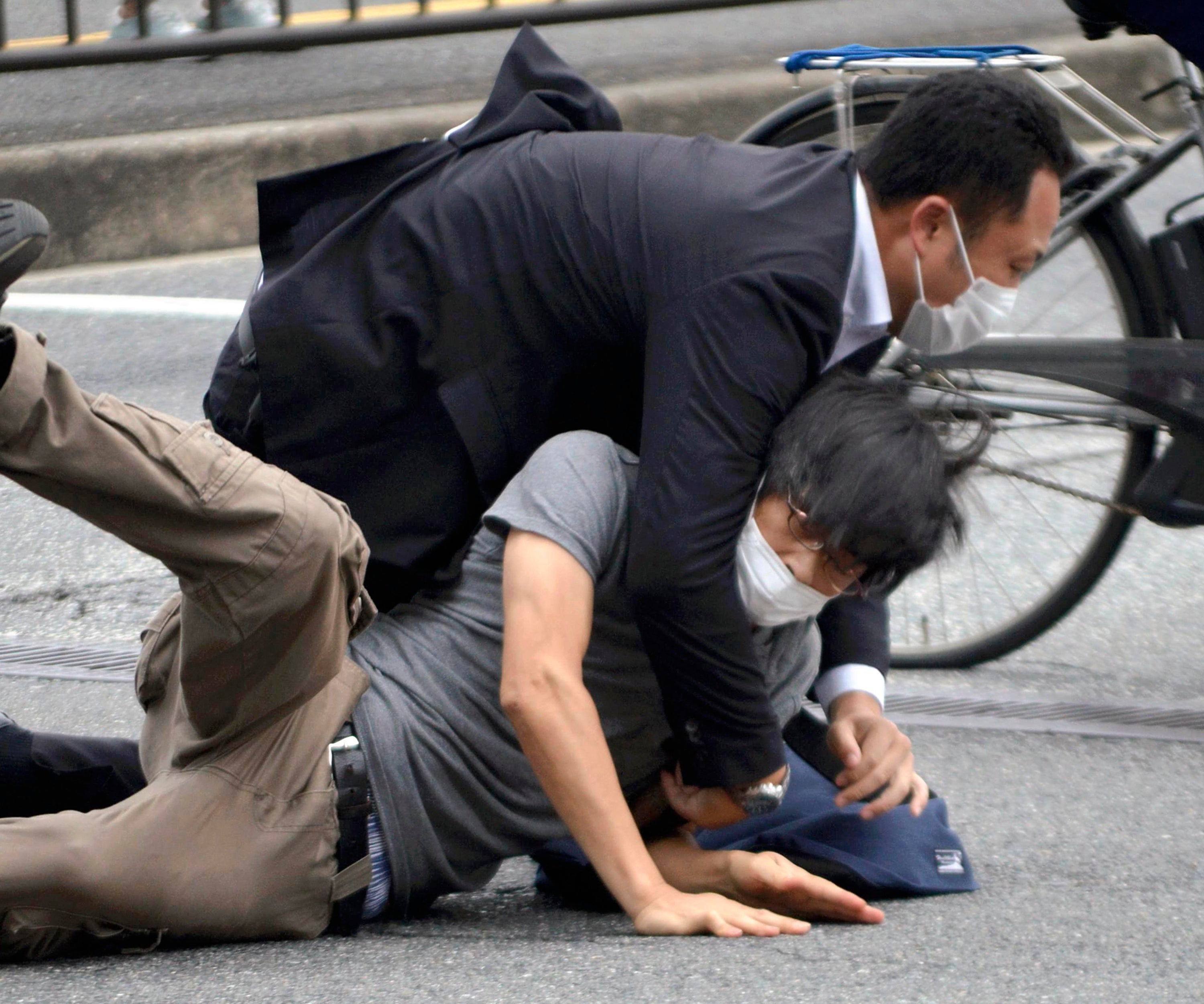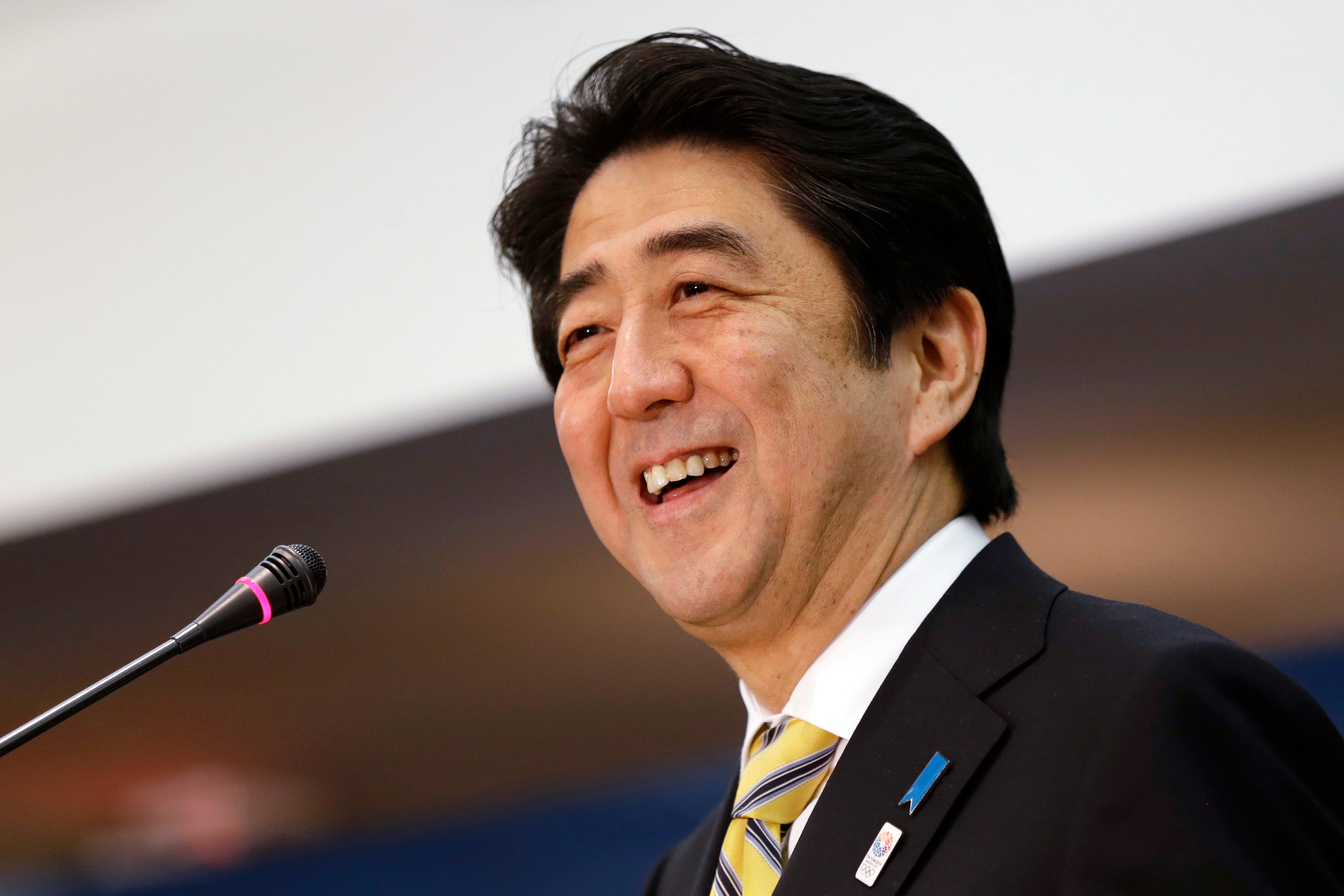Murder charge filed against Shinzo Abe assassination suspect
Tetsuya Yamagami deemed fit to stand trial after six-months-long mental evaluation

Your support helps us to tell the story
From reproductive rights to climate change to Big Tech, The Independent is on the ground when the story is developing. Whether it's investigating the financials of Elon Musk's pro-Trump PAC or producing our latest documentary, 'The A Word', which shines a light on the American women fighting for reproductive rights, we know how important it is to parse out the facts from the messaging.
At such a critical moment in US history, we need reporters on the ground. Your donation allows us to keep sending journalists to speak to both sides of the story.
The Independent is trusted by Americans across the entire political spectrum. And unlike many other quality news outlets, we choose not to lock Americans out of our reporting and analysis with paywalls. We believe quality journalism should be available to everyone, paid for by those who can afford it.
Your support makes all the difference.Prosecutors in Japan have charged the suspect in the killing of Shinzo Abe with murder, six months after the former prime minister was assassinated in broad daylight, sending shockwaves across the country.
Tetsuya Yamagami, 42, was arrested immediately after allegedly shooting Mr Abe during his campaign speech in Nara, western Japan, in July with a handmade gun.
Following his nearly six-month mental evaluation, prosecutors said Mr Yamagami is fit to stand trial, which could see him face life imprisonment if convicted.
Mr Yamagami was indicted on charges of murder and violating a gun control law, according to the Nara District Court.
The assassination of Abe, one of Japan’s most influential and divisive politicians, triggered a publica debate on the unification church and its ties with Japan’s dominant Liberal Democratic Party (LDP).
Mr Yamagami told the police he had a grudge against Abe because of his apparent links to the controversial Unification Church and blamed it for his mother’s bankruptcy as she had donated 100 million yen ($774,700) to the group.
His lawyer, Masaaki Furukawa, said on Thursday, that Mr Yamagami will have to take the responsibility for the serious consequences of his alleged actions and the defence lawyers will work to have his sentence reduced.

Due to the complexity of the case, it would take months before his trial begins, Mr Furukawa said.
Police are also reportedly considering additional charges against him, including producing weapons, violating explosives control law and causing damage to buildings.
However, a section of people expressed sympathy for Mr Yamagami and also signed a petition requesting leniency.
The Unification Church has been described by critics as “cult -like” as it sends its followers to work as volunteers, known colloquially as “Moonies”, to pressure devotees into making large donations.

It was first set up in South Korea by Sun Myung Moon in the early 1950s and later came to Japan and developed ties with politicians to grow its followers base.
Prime minister Fumio Kishida’s popularity has taken a hit after an investigation into the case revealed years of close ties between Mr Abe’s governing Liberal Democratic Party and the church.
Mr Kishida has denied any links with the group and his government has adopted a law to help victims of the church’s fundraising practices. A measure experts deem insufficient.
Join our commenting forum
Join thought-provoking conversations, follow other Independent readers and see their replies
Comments